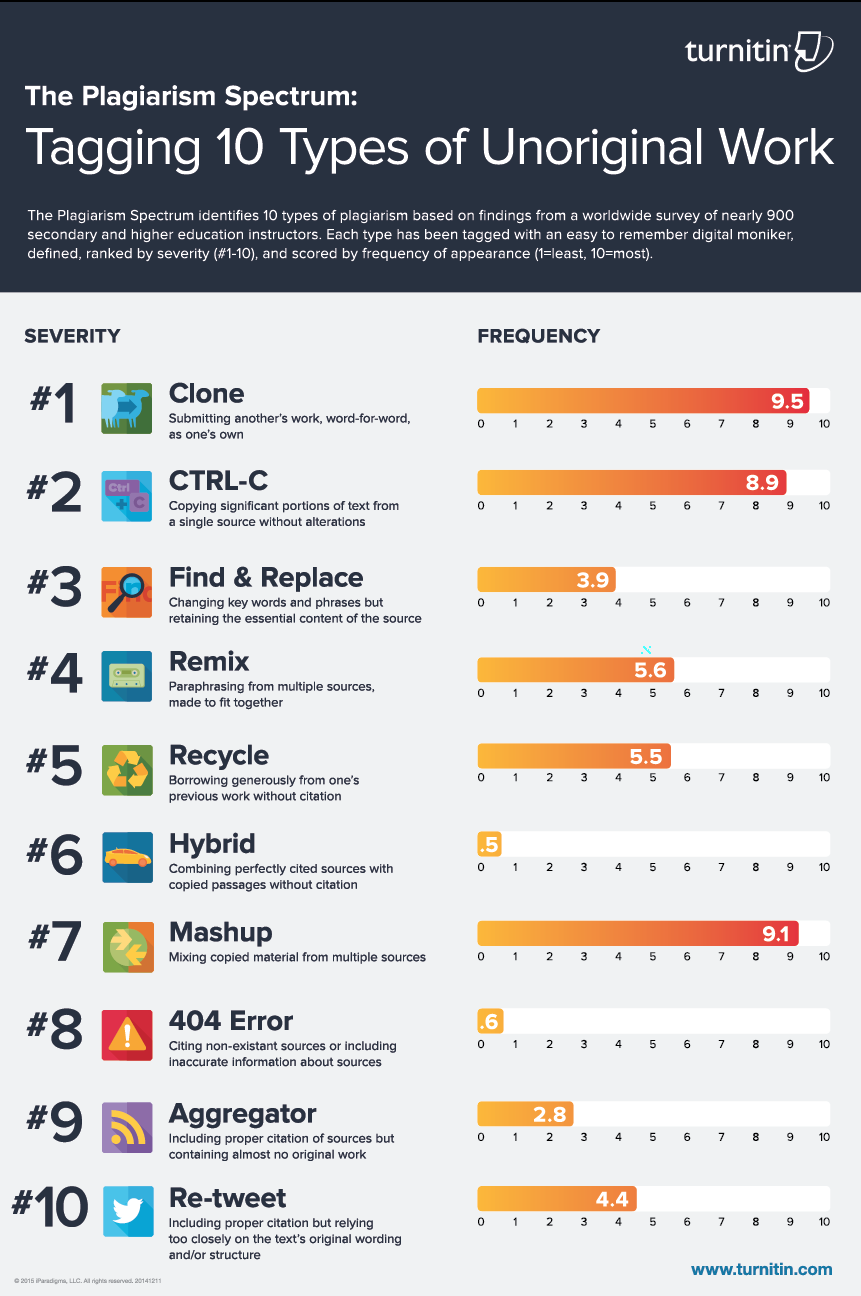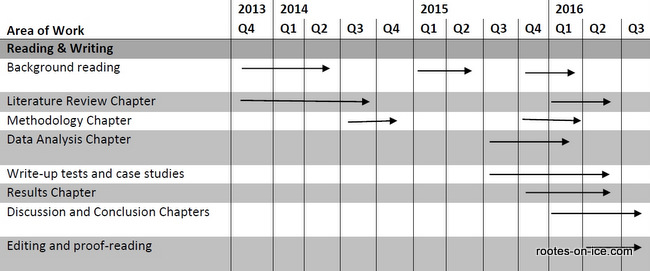
on avoiding plagiarism and other inappropriate writing practices was created to help students, as well as professionals, identify and prevent such malpractices and to develop an awareness of ethical writing and authorship. This guide is one of the many products stemming from ORI’s effort to promote the RCR Plagiarism Overview Plagiarism is using someone else’s ideas or words without giving them proper credit. Plagiarism can range from unintentional (forgetting to include a source in a bibliography) to intentional (buying a paper online, using another writer’s ideas as your own to make your work sound smarter). Beginning writers and expert writers alike can all plagiarize The purpose of this module is to help students, as well as professionals, identify and prevent questionable practices and to develop an awareness of ethical writing. This guide was written by Miguel Roig, PhD, from St. Johns University with funding from ORI. This module was originally created in and revised in and * Note: Self-plagiarism is NOT considered research misconduct in
Preventing Plagiarism when Writing - blogger.com
This page is brought to you by the OWL at Purdue University. When printing this page, you must include the entire legal notice. All rights reserved. This plagiarism in writing may not be published, reproduced, broadcast, rewritten, or redistributed without permission.
Use of this site constitutes acceptance of our terms and conditions of fair use. These resources provide lesson plans and handouts for teachers interested in teaching students how to avoid plagiarism.
The resources ask students to practice summarizing, paraphrasing, plagiarism in writing, and quoting. The resources with titles that include "Handout" provide handouts that are free to print for your students by using the print option plagiarism in writing your web browser.
The "Handout" resources correspond with the resource listed above it, plagiarism in writing. This 45 to minute activity allows students to practice writing their own summaries as well as evaluate summaries written by their peers. This minute activity provides students practice with paraphrasing visual and multimedia texts.
This minute activity first offers students various examples of how to cite a single passage. This minute activity asks students to practice quoting an original source.
The supplemental handout for this activity offers useful templates for students to use when both quoting as well as interpreting a quote in their own work. This minute activity asks students to analyze and evaluate example summaries, paraphrases, plagiarism in writing, and in-text citations in a given sample essay.
Find Info For Find Info For Academics Admissions Current Students Athletics About Careers Prospective Students Research and Partnerships Quick Links Apply News President Shop Visit Give Emergency. Purdue Online Writing Lab College plagiarism in writing Liberal Arts. Writing Lab Purdue OWL Research Contact Site Map. Teacher and Tutor Resources Preventing Plagiarism Avoiding Plagiarism.
Welcome to the Purdue OWL This page is brought to you by the OWL at Purdue University. Avoiding Plagiarism Summary: These resources provide lesson plans and handouts for teachers interested in teaching students how to avoid plagiarism.
Avoiding Plagiarism: Writing With Integrity
, time: 35:20Plagiarism – The Writing Center • University of North Carolina at Chapel Hill

Plagiarism is the representation of another author's language, thoughts, ideas, or expressions as one's own original work. In educational contexts, there are differing definitions of plagiarism depending on the institution. Plagiarism is considered a violation of academic integrity and a breach of journalistic blogger.com is subject to sanctions such as penalties, suspension, expulsion from The purpose of this module is to help students, as well as professionals, identify and prevent questionable practices and to develop an awareness of ethical writing. This guide was written by Miguel Roig, PhD, from St. Johns University with funding from ORI. This module was originally created in and revised in and * Note: Self-plagiarism is NOT considered research misconduct in "No one can eliminate plagiarism one hundred percent of the time. What one can do is to implement a proactive and visible program to deter plagiarism and encourage academic honesty." - Dr. Barbara Glatt. Since , Glatt Consulting Services has assisted academic institutions with Plagiarism Forensics

No comments:
Post a Comment